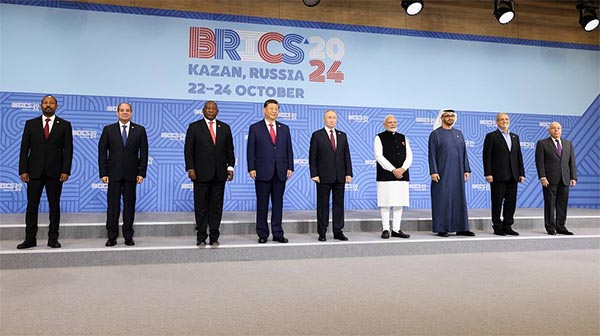
KAZAN | TASS | Leaders from BRICS nations have endorsed comprehensive reforms for the United Nations (UN), including its Security Council, to enhance its democratic representation and effectiveness. This was outlined in the Kazan Declaration, adopted at the recent BRICS Summit, which encompasses 134 points across 43 pages, addressing a variety of global issues, sanctions, and regional conflicts, including those in Ukraine and the Middle East.
Key Highlights from the Declaration
UN Reforms
BRICS leaders emphasized the need for substantial reform of the UN, particularly the Security Council, to improve its democratic nature and representation. They also stressed the UN's vital role in global governance of artificial intelligence.
Sanctions
The summit participants opposed politically motivated unilateral sanctions that hinder the development of other nations.
Conflict Resolution
Concerns were raised about increasing violence and ongoing armed conflicts worldwide, which have significant regional and international implications. The leaders reaffirmed their commitment to resolving disputes peacefully through diplomacy and inclusive dialogue.
They expressed specific concern over the situation in the Middle East, condemning recent Israeli attacks, including one on the Iranian embassy in Damascus, as well as a terrorist attack in Lebanon involving communication technology.
The declaration supported the establishment of a sovereign State of Palestine within the internationally recognized 1967 borders and its admission to the UN.
Combating Terrorism
BRICS countries condemned terrorist attacks on cross-border energy infrastructure and called for impartial investigations. They also opposed the politicization of efforts to combat transnational crime.
Iran Nuclear Deal
The leaders urged for the revival of the Joint Comprehensive Plan of Action (JCPOA) regarding Iran’s nuclear program, which the US has unilaterally rejected.
Economic Cooperation
The BRICS nations advocated for reforms of the Bretton Woods institutions to amplify the role of developing countries in the global economy. They called for an open and fair multilateral trade system, emphasizing the World Trade Organization's role and advocating for special provisions for developing nations.
Additionally, the leaders supported Russia's initiative to establish a Grain Exchange and discussed creating an independent cross-border BRICS clearing and depository system.
The declaration reflects a unified stance on various pressing global issues, reinforcing BRICS's commitment to international cooperation and development.















